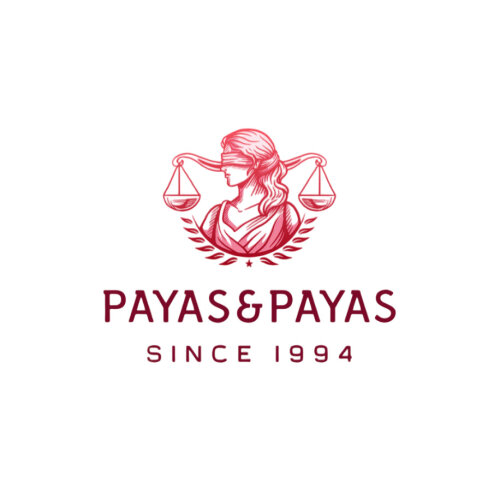Best Child Custody Lawyers in Izmir
Share your needs with us, get contacted by law firms.
Free. Takes 2 min.
Free Guide to Hiring a Family Lawyer
List of the best lawyers in Izmir, Turkey
Turkey Child Custody Legal Questions answered by Lawyers
Browse our 1 legal question about Child Custody in Turkey and read the lawyer answers, or ask your own questions for free.
- Custody
- I am a foreginer, but i have a son in Philippines. We never married with my gf coz she was married before. Now we separated, and she took my son. But now she is saying me that she willl leave him to his mom and she will go to abroad.... Read more →
-
Lawyer answer by Kule Hukuk Bürosu
According to the Turkish legal system, custody of children born out of wedlock is generally given to the mother. However, the father can request custody or visitation rights, focusing on the best interests of the child. If you wish to...
Read full answer
Turkey Child Custody Legal Articles
Browse our 1 legal article about Child Custody in Turkey written by expert lawyers.
- What Are the Child Custody Laws in Turkey?
- Table of ContentsIntroduction: Understanding Turkish Child Custody LawsThe Golden Rule: The "Best Interests of the Child" PrincipleThe Legal Foundation: Turkish Civil Code and International LawTypes of Custody Arrangements in TurkeySole Custody (Tek Başına Velayet)Joint Custody (Ortak Velayet)Custody for Unmarried ParentsThe Court Process and the Social Investigation ReportFinancial Considerations: How Child... Read more →
About Child Custody Law in Izmir, Turkey
Child custody laws in Turkey focus on the best interest of the child. After a divorce, custody may be awarded jointly or to one parent based on factors such as the child's age, the parent's ability to raise the child, and circumstances surrounding the living condition of each parent. Children aged 12 years and above are allowed to express with which parent they prefer to live. Izmir, like the rest of the nation, follows these provisions.
Why You May Need a Lawyer
Custody cases can be complex and emotionally draining. As such, seeking the assistance of a lawyer can provide the guidance needed to navigate through the process. Whether you are considering filing for custody, disputing a custody claim, or dealing with enforcement or modifications of existing custody orders, a lawyer can help protect your rights and advocate for your interests.
Local Laws Overview
The Turkish Civil Code (Türk Medeni Kanunu) outlines the determinants of child custody. Primarily, custody is granted based on the best interest of the child. Parents can agree on joint or sole custody. In the event they can't reach an agreement, the courts decide on the matter taking into account different factors such as the financial stability, four living conditions, child's education, and the child's physical and mental well-being.
Frequently Asked Questions
1. What happens if parents cannot agree on custody?
If parents cannot reach an agreement, the court will decide on the custody based on the best interest of the child.
2. Can custody arrangements be altered after a decision is made?
Yes, if there's a substantial change in circumstances and it's in the best interest of the child, custody arrangements can be altered.
3. Does the child have a say in the custody decision?
Yes, children aged 12 years and above are typically given an opportunity to express their preference.
4. How does the court determine the child's best interests?
The court will factor in elements like each parent's ability to care for the child, the emotional bond between the child and each parent, the child's age, safety considerations, and the child's wishes, if they are of a certain age.
5. Who can I turn to for help in a child custody case?
An experienced attorney can provide guidance and advocate for your interests in a child custody case. Other resources include family courts and certain governmental bodies or organizations working towards child and family welfare.
Additional Resources
Legal aid agencies like The Legal Counsel of the Republic is helpful for individuals in need of legal advice. Family and Social Policies Provincial Directorate is a government division focused on child and family welfare. Non-governmental organizations like Children's Rights Center of Istanbul are also helpful resources.
Next Steps
If you need legal assistance with child custody, consider seeking advice from lawyers specialized in family law. Ensure that you clearly understand your rights and the legal process involved. Keep all documents well-organized, and continuously stay updated with your legal proceedings to mount the best possible case for child custody.
Lawzana helps you find the best lawyers and law firms in Izmir through a curated and pre-screened list of qualified legal professionals. Our platform offers rankings and detailed profiles of attorneys and law firms, allowing you to compare based on practice areas, including Child Custody, experience, and client feedback.
Each profile includes a description of the firm's areas of practice, client reviews, team members and partners, year of establishment, spoken languages, office locations, contact information, social media presence, and any published articles or resources. Most firms on our platform speak English and are experienced in both local and international legal matters.
Get a quote from top-rated law firms in Izmir, Turkey — quickly, securely, and without unnecessary hassle.
Disclaimer:
The information provided on this page is for general informational purposes only and does not constitute legal advice. While we strive to ensure the accuracy and relevance of the content, legal information may change over time, and interpretations of the law can vary. You should always consult with a qualified legal professional for advice specific to your situation.
We disclaim all liability for actions taken or not taken based on the content of this page. If you believe any information is incorrect or outdated, please contact us, and we will review and update it where appropriate.














